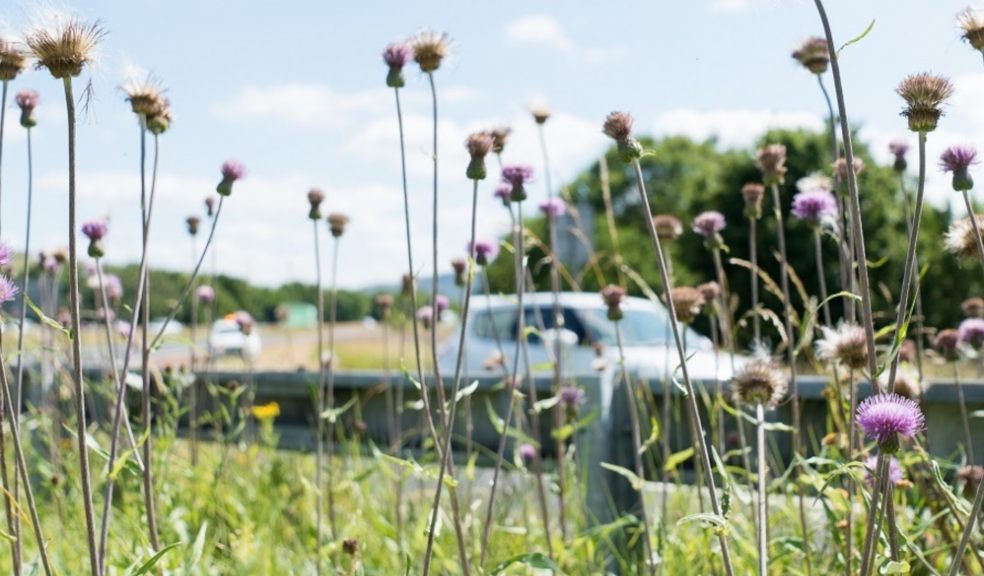
National Highways and The Wildlife Trusts announce biodiversity boost across South West England
National Highways and The Wildlife Trusts have joined forces to launch a new £6 million Network for Nature programme that will improve habitats across the South West of England benefitting people, nature and wildlife.
The projects will help create, restore and connect places for wildflowers, trees and wildlife, where the environment has been impacted by activities from previous road building. Natural solutions such as wetlands and reedbeds will help filter polluted run-off from roads.
Wild areas which have been fragmented by highways will be improved and restored for nature, with one scheme piloting hazel dormouse bridges alongside the M5 in Somerset, reconnecting isolated populations of critically rare dormice and helping them spread into the wider landscape.
At Langford Lakes nature reserve, in Wiltshire, next to the A36, 11 hectares of wetland habitat will be created and enhanced for birds of conservation concern. New habitat features will include a sand martin bank, tern rafts, an area of reedbed, wet grassland and muddy wetland margins will support breeding lapwing, breeding common tern, breeding sand martin.
A stretch of the River Were which flows through Smallbrook Meadows nature reserve will be restored, allowing it to once more meander through the floodplain creating space to support birds, mammals and vital insects.
National Highways, the company responsible for England’s motorways and major A-roads, has awarded nearly £6 million from its Environment and Wellbeing designated fund into the Network for Nature programme.
Overall, twenty-six biodiversity projects will enhance, restore and create more than 1,700 acres (690 hectares) of woodlands, grasslands, peatlands and wetlands across every region of England, with 3 sitting in the South West of England.
In England, the roadside estate is vast and yet is adjacent to some of our most precious habitats. When situated alongside linear infrastructure, such as motorways, habitats can create crucial corridors for pollinating insects, birds and small mammals, enabling wildlife to move through the wider landscape.
Mark Fox, South West Interim Regional Director for National Highways, said: “We’re committed to significantly improving biodiversity near our road network, and this investment in the South West underlines our commitment to reducing the impact of our roads on the environment and supporting biodiversity.
“At National Highways, our work goes beyond operating, maintaining and improving roads; we’re investing in the environment and communities surrounding our network, helping to unlock the creation and enhancement of habitats, and this is an example of the difference we can make with designated funding.
“We were delighted to partner with The Wildlife Trusts to realise these projects – a glowing example of how this funding can improve biodiversity near our roads.”
Since 2015 the company has invested around £25 million towards the creation, enhancement and restoration of habitats on or near the motorway and major road network. The combined group of projects within the Network for Nature programme will be one of the biggest contributors towards biodiversity improvements.
Nikki Robinson, Network for Nature Programme Manager for The Wildlife Trusts said: “We’re very pleased that National Highways is committed to Network for Nature, with a strategic approach to restoring nature and joining up vital places for wildlife to help counter the impacts of previous road building.
“Historic road building programmes have contributed to nature’s decline, fragmenting wild spaces and causing environmental pollution, and this programme will help Wildlife Trusts throughout England carry out important nature conservation work, and contribute to a national Nature Recovery Network, connecting town and countryside, and joining up vital places for wildlife, and promoting landscape scale connectivity.”
National Highways aim to achieve no net loss of biodiversity by 2025, lead industry peers and the supply chain, and encourage and support communities to connect with wildlife and wild places where they live and work.
Currently in its third year, National Highways’ Designated Funds programme, which was allocated £936m for Roads Period 2 (2020-2025), is divided into four funding streams aimed at making the biggest difference and delivering lasting benefits; environment and wellbeing, users and communities, safety and congestion and innovation and modernisation.
For more information, please visit the webpage.

















